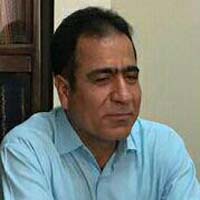Analytical Investigating The Four Dimensions Of Technological Mediation of Flipped Learning in Postphenomenology approach
At the center of postphenomenological thinking is the technological intermediary. Don Ihde’s typology of human-world relationships-embodiment, hermeneutic, alterity, and background provides a methodology dealing with how technologies shape and reshape both “humans” and “world” through specific intermediary effects. He mentions two specific features of magnification and reduction in the application of any technology, and believes that the application of any technology while enhancing the aspect of human life, reduces another aspect. The magnification-reduction structure is a two-sidedness that It can be seen in various dimensions, and there is no mere empirical fact about technological intermediary. Empirical fact of technological intermediary, the two-sidedness of technological intermediary expresses how technological intermediaries shape both “world” and “human”. In this study, various aspects of incremental reduction of flipped classroom are being examined in four different dimensions of technological intermediary and technological formation of our world life. By addressing the various dimensions of technological intermediation, we can examine the different aspects of our world life .Here, by addressing the increases and decreases in flipped classroom in various dimensions, we seek to find out if the reverse flipped pattern, as a model of the combination of traditional technology and education, is an appropriate model for solving problems with the educational system? In other words, does the flipped learning pattern solve problems and shortcomings of the existing educational system? In this paper, the post-phenomenology approach is used to identify and explain the increases and reductions in the various dimensions of technological intermediary in the relationship between human and the world in flipped learning. The method in this research Post-phenomenology. It is a branch of phenomenology that, by combining phenomenology and pragmatism, explores the human-technology relations. Finally, it should be noted that the achievement of the reverse education increases and reductions in the four dimensions above helps us to get a clear understanding of our estimate of the flipped learning at the social and personal level.
The method of this research is Post-phenomenology. It is a branch of phenomenology that, by combining phenomenology and pragmatism, explores the human-technology relations.
The results of the research indicate that reverse education, with increases and decreases in four ontological, epistemological, practical and ethical dimensions, has dramatically improved the problems and deficiencies of traditional education and e-learning, and is a useful model for solving many problems in any educational system.
-
A Philosophical Exploration of Dramaturgy as an Educational Approach: Examining Roles and Proposing Improvements for the Teacher Education System
Mohammad Faghedi *, Alireza Mahmmudnia, Ramazan Barkhordari, Yahya Ghaedy
Journal of Technology and Scholarship in Education, -
Designing the Elementary School Science Curriculum based on Bhaskar's Transcendental Realism
Yunes Amirahmadi *, Saeid Zarghami-Hamrah,
Journal of Theory and Practice in Curriculum,



